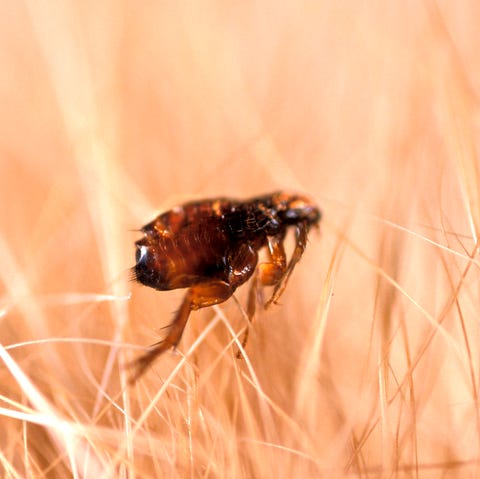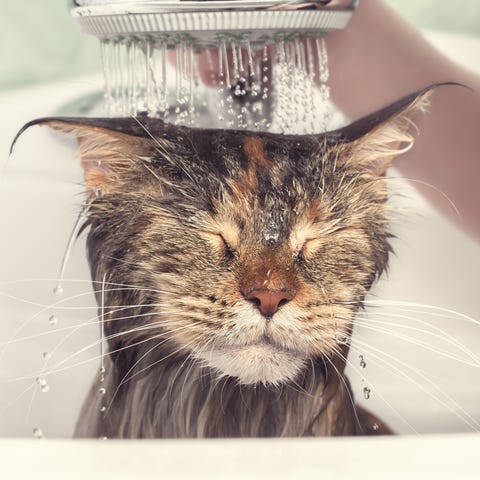Egypt: National campaign to combat intestinal parasites in children - Health - Life & Style - Ahram Online
Egypt: National campaign to combat intestinal parasites in children - Health - Life & Style - Ahram Online |
| Posted: 05 Apr 2019 12:00 AM PDT The Ministry of Health and Population, in cooperation with the World Health Organisation (WHO) and the Ministry of Education, has launched the second phase of a national campaign to eliminate intestinal parasites (worms) in primary school children across the country. The national campaign is targeting 12.5 million children aged between 6-12. Parasitic infection remains a serious public health problem the world over, especially in developing countries, and represents a major cause of morbidity and mortality in childhood and among high-risk groups in most parts of the world. Treatment includes two chewable tablets of Mebendazole 500mg to prevent infection from intestinal parasites. The medicine is safe and the most commonly used to treat intestinal worms in children, Minister of Health and Population Hala Zayed said at a press conference, adding that the campaign aims to decrease the prevalence of intestinal parasites and prevent associated complications (diarrhoea, anaemia and malnutrition) that could ultimately affect the growth of school-aged children. Such parasites can be easily transmitted by contaminated hands. Intestinal parasites can also be easily transmitted either by eating unclean vegetables and fruits or those contaminated with parasitic eggs. More than 20 million tablets are being used in the campaign according to Alaa Eid, head of the ministry's Preventive Medicine Department. Ministry of Health and Population Spokesman Khaled Megahed noted that the campaign is part of the ministry's various health initiatives launched for school students as part of the president's initiatives to safeguard the health of Egyptian children. Other campaigns have been held to detect obesity, anaemia and stunting among school students, Megahed said. He said the ministry, along with the Ministry of Education, is raising the awareness of students about personal hygiene as a means of avoiding parasite infections. Intestinal parasites among school students is around 31 per cent, Megahed said, adding that 64 per cent of boys were found to be infected while infection among girls was around 55 per cent.
Search Keywords: Short link: |
| How to Get Rid of Fleas on Cats - Fleas on Cats Symptoms and Treatments - GoodHousekeeping.com Posted: 23 Apr 2019 01:34 PM PDT While everyone else gets all riled up about tick season, the warm weather means another parasitic pest is upon us: fleas. The rising temperatures makes it more hospitable for eggs to hatch, and more probable for adult fleas to jump onto unsuspecting cats. But unlike ticks, fleas are much more likely to make pets anemic, according to John de Jong, DVM, a veterinarian in the Boston area and the current president of the American Veterinary Medical Association (AVMA). "They're just wiped out weak and tired from having their blood literally sucked out of them by little vampires," he says. Fleas themselves can also host the larvae of an intestinal parasite. If your pet bites at and swallows any infected fleas, they can also come down with a tapeworm — not good. Here's exactly what you need to know to combat and treat a flea infestation on your cat and in your home: How do cats get fleas?Cats can pick up fleas at kennels, groomers, or outside. "Typically if your cat's an indoor cat, they're not going to get fleas," Dr. de Jong says. "It's the cat that goes in and out of the house." There are many different species of fleas, but cat fleas (Ctenocephalides felis) are — you guessed it — the most common culprits, according to Purdue Extension Entomology. These pests can jump up about 12 inches high onto an unlucky host, feed, and then lay eggs in the fur. These eggs will also fall off the pet onto the carpet, furniture, or wherever your cat likes to hang out. The eggs then transform into larvae, then pupae, then adults, starting the cycle all over again. Cat fleas will bite humans too. "Fleas are parasites — they're looking for blood to suck," says Dr. de Jong. "If they don't find enough cat hosts, they'll suck on the owner's ankles and feet." However, the advent of effective flea and tick preventative products has made these infestations much rarer than they used to be. If you're already using one and think your cat may have fleas, talk to your vet about what and how you're applying. What are the symptoms of fleas on cats?The most common signs of a flea infestation include:
That black particulate matter is called "flea dirt." "That's a polite way of saying flea feces," Dr. de Jong says. "If you take one of those droppings and you get it wet with a drop of water, it'll turn red. That's because it's dried blood." To check for an infestation, you can also use a flea comb and brush your cat to see if any fleas jump out. In his hospital, Dr. de Jong will roll the animal over and blow on the fur to see if there are any fleas or flea droppings. Regardless, different skin parasites — like Cheyletiella — can make cats scratch and itch. For that reason, you should still see a veterinarian to confirm a flea infestation and rule out other potential causes. What is the best flea treatment for cats?Besides ruling out other diseases, your vet can administer products that will kill fleas on the animal within a day, Dr. de Jong says. Afterwards, your vet will likely recommend using a good tick and flea preventative to keep the pests at bay. These include topical, spot-on treatments like Frontline and Advantage or chewable tablets. When other fleas in your home jump on your pet, the product will make them die as well, helping reduce the infestation. What are home remedies for fleas on cats?In addition to seeing your vet, you can still help your cat with these easy treatments. Here's how: 1. Give your cat a flea bath.You can use Dawn dish detergent, but Dr. de Jong prefers using a reputable brand of flea shampoo if you're not already using a flea preventative. Ask your vet about what's best for your pet first. "You don't want to mix two different drugs into your animal's system," he says. 2. Use a flea comb to remove fleas and flea eggs.Most brands recommend dipping the comb into hot, soapy water after each pass to remove and trap the parasites. Comb in the direction of hair growth. Repeat several times daily for best results. 3. Treat your home.Obviously you'll want to get all the fleas off your cat and make them as comfortable as possible, but that alone won't stop an infestation. "Fleas spend about 20% on animal and the rest of the time they're in environment," Dr. de Jong says. "You have to get rid of the whole flea cycle." How do you to get rid of fleas in the house?To get rid of fleas in your environment, you'll have to take precautions similar to if you were dealing with lice, bed bugs, or another pest. Follow these tips from the Environmental Protection Agency:
You can also apply insecticide according to the manufacturer's instructions or contact a professional exterminator to treat the house and yard. The most effective ones contain ingredients such as permethrin, imidacloprid, or dinotefuran to kill adult fleas and an "insect growth regulator" like methoprene or pyriproxyfen to stop the development of eggs and larvae, according to the University of Kentucky Entomology Department. Always follow the directions and safety precautions on the label. It's typical to see new adult fleas after treatment, but continued vacuuming may stop the infestation without a second application. Persistence is key when it comes to fleas, but by taking all of the necessary steps, it is possible to stop an infestation and protect your cat from these nasty bloodsuckers. |
| You are subscribed to email updates from "How do you kill intestinal parasites" - Google News. To stop receiving these emails, you may unsubscribe now. | Email delivery powered by Google |
| Google, 1600 Amphitheatre Parkway, Mountain View, CA 94043, United States | |


Comments
Post a Comment